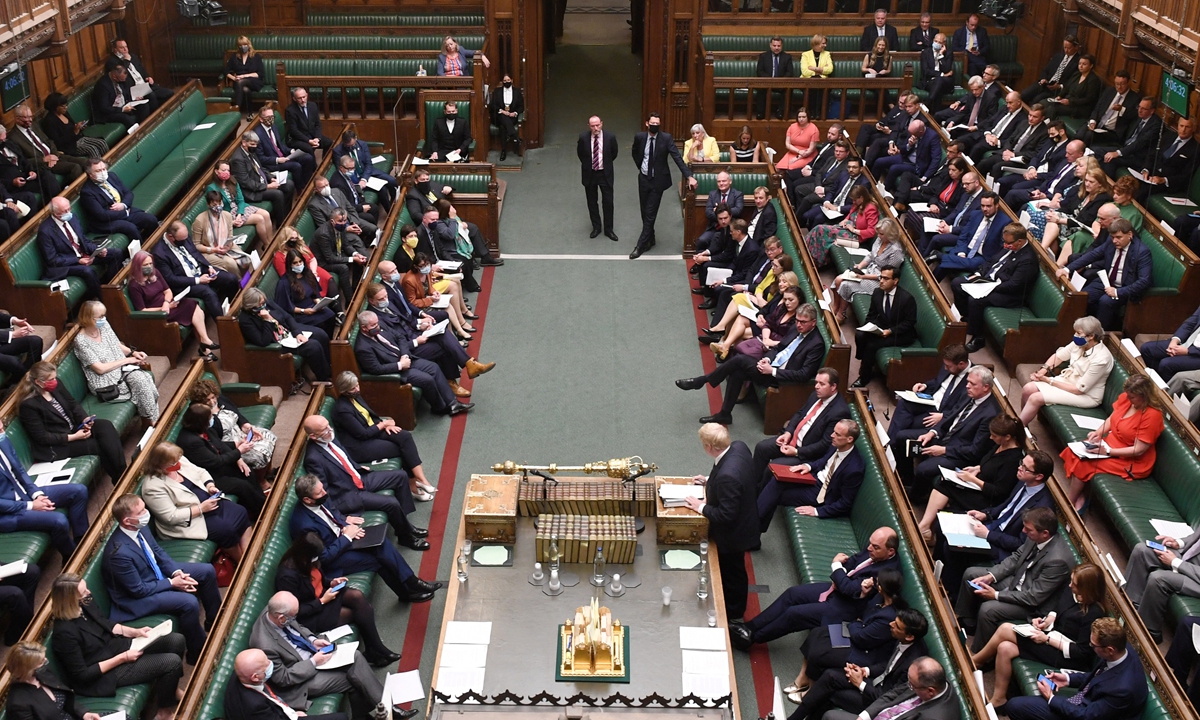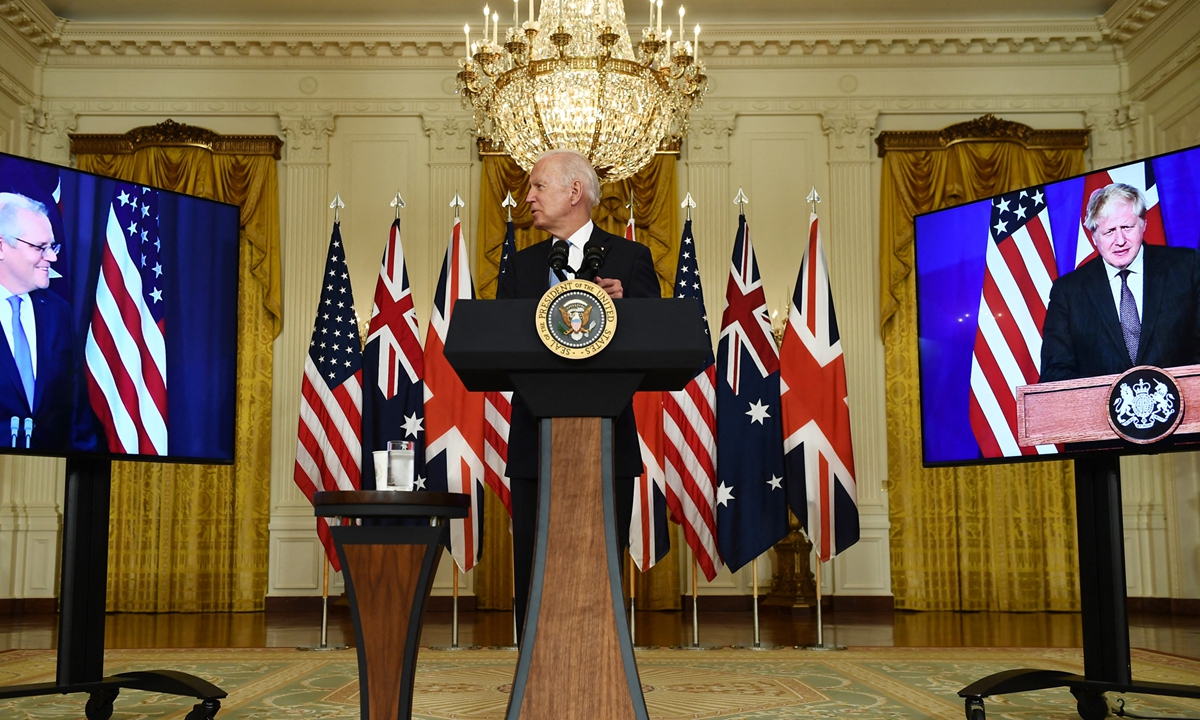COMMENTS / EXPERT ASSESSMENT
UK should think twice before ousting Chinese company from its nuclear project

Illustration: Liu Rui/GT
The UK government is reportedly closing in on a deal that could kick China's nuclear power giant General Nuclear Power Group (CGN) out of the £20 billion ($27 billion) Sizewell C nuclear power project on so-called security grounds.London may announce a decision ahead of next month's spending review and the UN climate change conference in Glasgow in November, but it remains unclear how the Chinese company will be frozen out of Sizewell C, according to UK media outlet Daily Mail.
Whether related reports are complete and accurately reflect the position of the UK government is not known yet. There was similar speculation by the UK media in July, but, if the alleged decision is confirmed by Johnson's government, it will have adverse impact on the UK.
For starters, it will leave the UK a huge financial gap which has to be plugged by pension funds. CGN has a 20 percent stake in the Sizewell C project and an option to retain that share of the nuclear project once it is built. If CGN is forced to pull out from the project, the UK side needs to figure out options to fill up the multi-billion pound funding hole. The Daily Mail reported that the Treasury Department is examining plans to use pension funds to plug the gap for Sizewell C.
Second, it risks further ratcheting up geopolitical tensions, which are already running high after London's decision to join the AUKUS pact with the US and Australia.
The UK side has severely damaged relations with China with unilateral moves targeting China's Xinjiang and Hong Kong. If it follows the US' lead further politicizing economic and trade ties with China after its arbitrary Huawei ban, the blow to the confidence needed to foster two-way cooperation will be far worse than the economic loss caused by the breach of the contract of Sizewell C.
Third, it will delay construction of the UK nuclear power stations, resulting in a huge gap in low-carbon power generation. Sizewell C, which is being constructed, would eventually power six million homes in the UK. Moreover, if the UK removes Chinese companies from contractually-bound cooperation projects, British companies will face Chinese company's demand for economic compensation.
Sizewell C nuclear power project was supposed to become a model of bilateral cooperation between China, France and the UK that could help the UK to fulfill carbon emission commitments, rather than a potential risk to the UK' national security as its politicians falsely claim. The UK has a market and an investment guarantee mechanism, but lacks technology and funds; France has technology and equipment; China has technology and funds as well as operational and construction capabilities.
The UK government should take a pragmatic approach to treating economic cooperation with China. It's extremely crucial for rational voices in the UK to speak up before current round of foaming at the mouth rhetoric among foreign media outlets seep into political calculations.
China-UK business relations are of particular importance for the UK in post-Brexit and post-COVID era. When Europe is not as open to the UK as before, it's understandable for the UK to be closer to the US, but there is no reason for the UK to abandon other important markets across emerging economies, especially China.
The article was compiled base on an interview with Feng Zhongping, director of Institute of European Studies of the Chinese Academy of Social Science. bizopinion@globaltimes.com.cn



